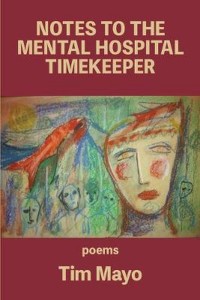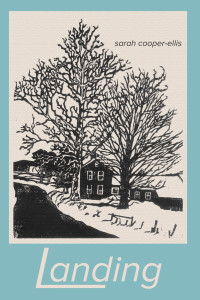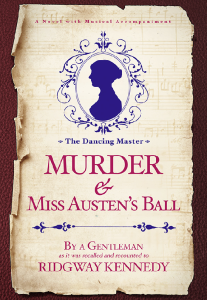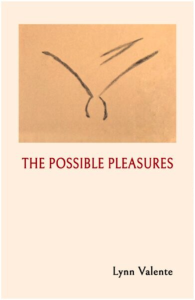
This is the book I needed right now. At this moment, a significant portion of my fellow citizens—including some friends and family—seem to have lost their minds, willing to destroy the country. For some it is the pursuit of ephemeral power, money and/or fame; for others, to be generous, it is out of fear. My astonishment and dismay know no bounds.
Now, at this moment, Mayo’s most recent collection of poems helps me find a way through. (Full disclosure: I know the author slightly.) From his work as a teacher and mental health worker, he brings us encounters with the delusional and with our own pasts.
I especially need a poem like “A Brief Explanation of the Psychotic Universe” which begins:
This is how it works: the invisible
cause and effect of the universe,
that Big Bang no one has ever heard,
emits its waves of singular commands.
The poem gives voice to someone who quite reasonably explains their own experience, someone who is perhaps psychotic, but also kind and compassionate, wanting to help others. That’s what I must remember: to see the whole person.
Because it is sometimes hard to tell if the poem is written in the persona of a patient or a staff person, Mayo narrows the distance between the two, finding our common humanity. Maybe we all have “a black wolf / which was once your shadow” lurking in our past. We all want to be treated with respect, no matter how strange our choices and compulsions may appear to others.
Poetry is music and the language here is undeniably musical. Throughout, Mayo’s language is both direct and complex. There are no obscure words or allusions that you have to look up. Yet in crafting these lines, using internal and slant rhyme, repeated sounds such as the “v” in the stanza quoted above, Mayo creates a rhythm all his own.
The poems in this collection explore the liminal space between oneself and others, the negotiations that must take place in that unsettled region where our own rules and certainties may not apply, where we must recognise what the other brings.
And sometimes the other may be ourselves, past or present. One of my favorite poems is “Pressure Cooker” where Mayo goes deeply into an incident from childhood, using a child’s language, building details until the devastating last stanza which opens the poem to encompass multitudes.
I love that Mayo goes after what Brian Doyle calls Big Ideas, unafraid to bring his lens—up close and personal—to concepts that might seem impossible to address in a single poem. Yet he succeeds. My favorite poem is “The Ladder” which uses details to bring us so vividly into the experience of climbing that physical and metaphorical ladder, and ends unexpectedly with something so simple, so profound that it is impossible to forget.
What poem has helped you face the day?



